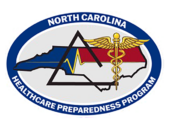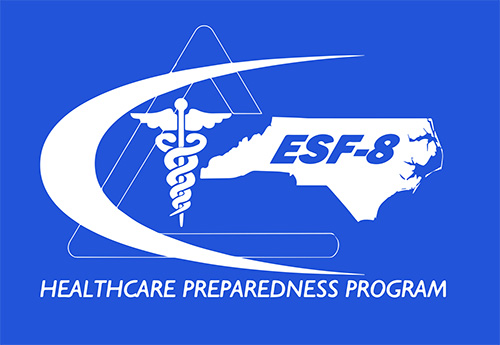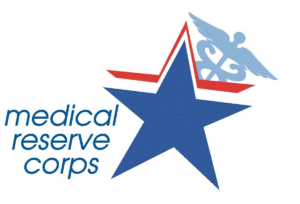
What is the Medical Reserve Corps?
The Medical Reserve Corps (MRC) is a national network of volunteers that are organized at a state, regional or local level to improve the health and safety of their communities. The National MRC Program is overseen by the Administration for Strategic Preparedness & Response (https://aspr.hhs.gov/MRC/Pages/index.aspx).
North Carolina’s Healthcare Preparedness Program is the lead state coordination entity for MRC Units in North Carolina and oversees the North Carolina State Medical Response System (SMRS). The SMRS provides support to an overwhelmed healthcare system by supplying necessary equipment, assets and/or personnel needed to provide medical care specifically during emergencies and disasters. Inclusion of our Medical Reserve Corp Units across North Carolina in the SMRS is an integral part of our program’s vision to “To Build a Prepared, Resilient and Sustainable Healthcare Community.”
Why is the Medical Reserve Corps Needed?
The need for the Medical Reserve Corps (MRC) was identified after the terrorist attacks on September 11th, 2001. Medical and public health professionals were eager to volunteer in support of emergency relief activities. The influx of volunteers showed the need for an organized approach to channel their efforts. The MRC was then established to provide a way to recruit, train, and activate volunteers to respond to disasters and other public health emergencies.
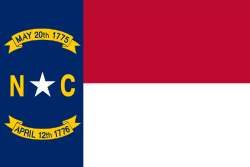
North Carolina MRC Units
MRC Unit Map
Click a star on the map for contact information for each MRC.
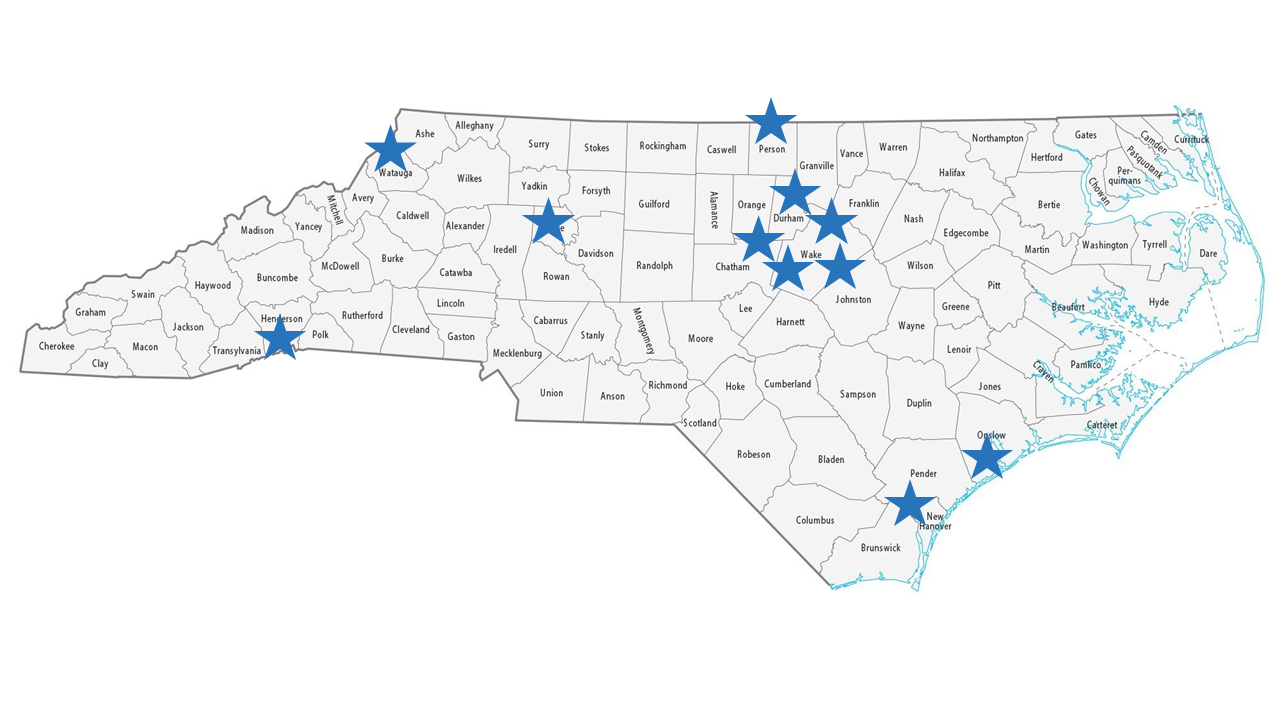
Appalachian MRC
Boone, NC
Contact: Jennifer Schroeder Tyson
Email: [email protected]
Mountain Regional MRC
Flat Rock, NC
Contact: Mark Stepp
Email: [email protected]
Piedmont HPC Medical Reserve Corps
Mocksville, NC
Contact: Mickey Boyles
Email: [email protected]
Person County MRC
Roxboro, NC
Contact: Josh Holland
Email: [email protected]
Central Carolina Medical Reserve Corps
Durham, NC
Contact: Jonathan Webster
Email: [email protected]
Capital MRC
Raleigh, NC
Contact: Katrina Shearin
Email: [email protected]
MidCarolina SMAT
Chapel Hill, NC
Contact: Joshua Fox
Email: [email protected]
Radiological Emergency Volunteer Corps
Raleigh, NC
Contact: Samantha Royster
Email: [email protected]
NC Baptist Men MRC
Raleigh, NC
Contact: Laurie Sillings
Email: [email protected]
Onslow County MRC
Jacksonville, NC
Contact: Dominique Van Pelt
Email: [email protected]
Southeastern HPR MRC
Wilmington, NC
Contact: Hans Edwards
Email: [email protected]
